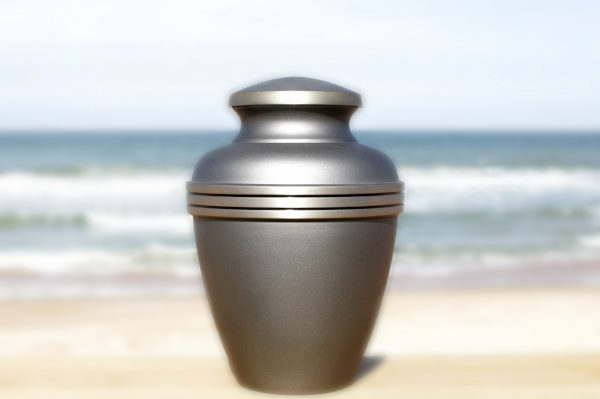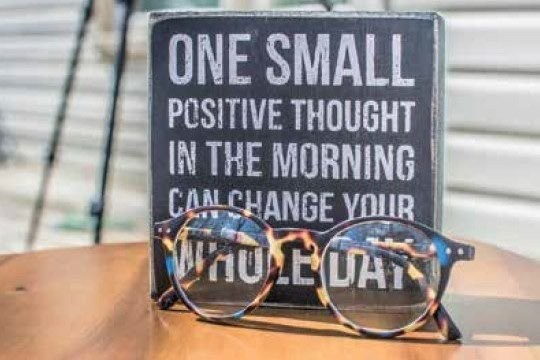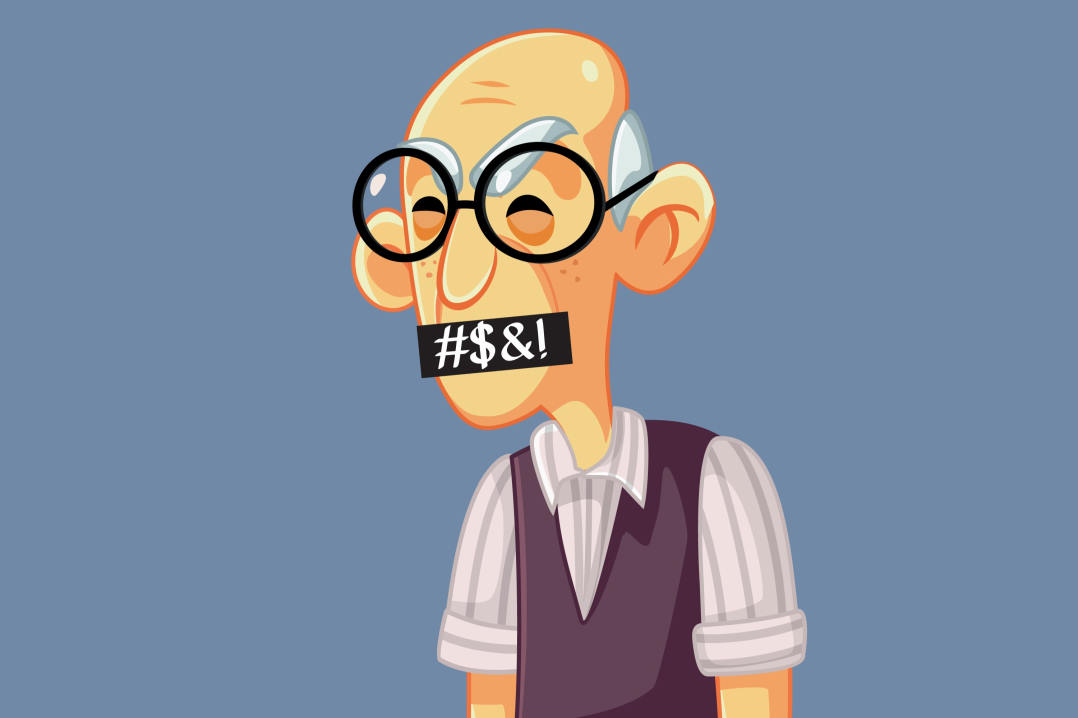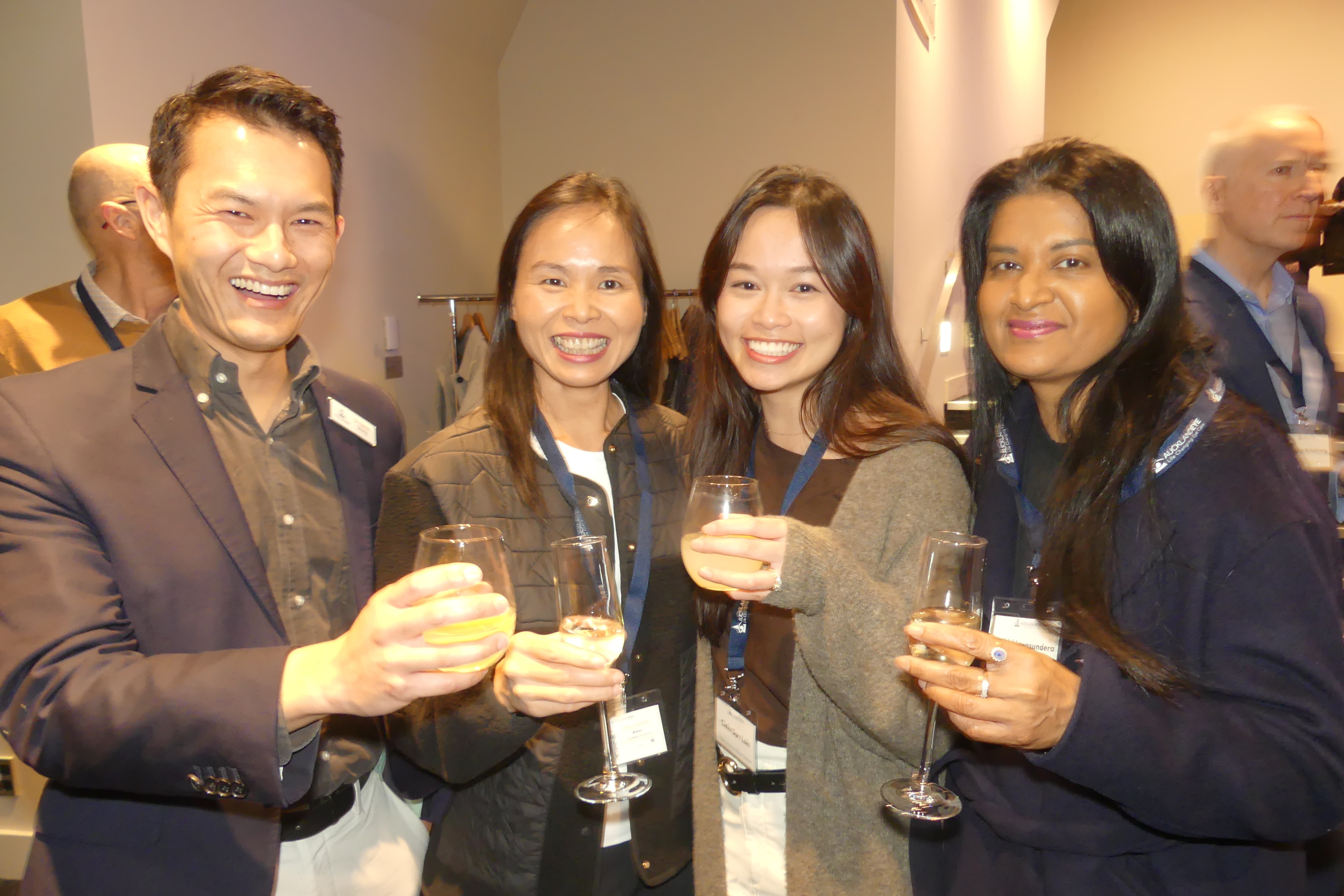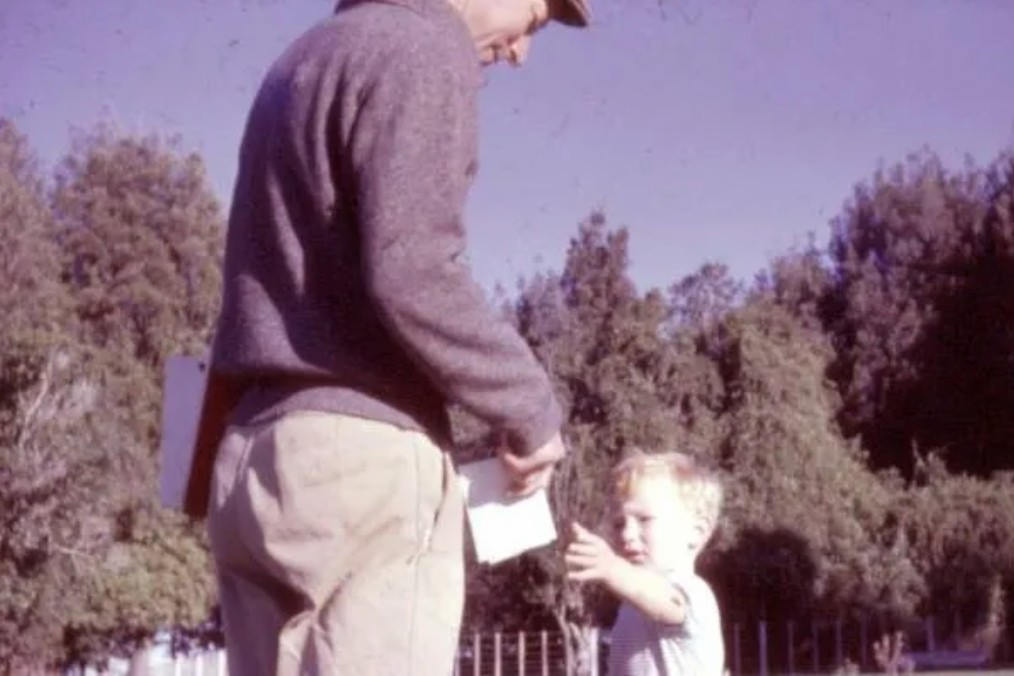Our house, in the middle of our street
Our grandfather was very loved by his family and never in any way neglected or overlooked. I just want to make that clear, because now I want to say this: after the funeral, his ashes were placed on a shelf by the undertaker, waiting to be collected. And there they stayed, waiting, for 20 years.
To reiterate: very loved by his family, never in any way neglected or overlooked. Also, fondly remembered. But life sometimes has a habit of undermining your best intentions, especially if no-one lives near the undertaker and his shelves.
Growing up in Devonport, my grandfather was a city boy, or at least a seaside village one, but I knew him as a rural man, a hill country farmer who fought in both wars and spent his last years in the warm company of his mates at the RSA in Palmerston North.
But the wheel turns, and turns again, and years after he had gone, some of us made our way back to Devonport to make it our home and, one Sunday in the Anglican Church where he had been baptised, Mum had a thought. The church had a special garden for ashes to be buried. So, she thought of that box on the shelf in Palmerston North.
She also thought of all the stories he’d told about growing up here. Playing cricket at the Domain. Rugby at one of the country’s longest established clubs. Swimming to Rangitoto and back... twice.
You could scatter the ashes on the hills of his old farm, but you might equally bring them back to his birthplace and the place he and his father and two brothers left for the first world war and fortunately all made it home.
She consulted. Everyone thought it was a lovely idea. We’d gather at the church, say a few words, return the ashes to the ground and then have a nice lunch together.
But then she had another thought. Why not also pay a visit to the old family home? Her sister found the address somewhere and Mum wrote it down and went around to see if the house was still standing and, yes, it most certainly was; a lovely Devonport villa on the side of the mountain, with handsome verandah and beautiful garden, and she knocked on the door, made herself known, told the owners the story of the ashes and the church and the family that grew up in Devonport and asked: would it be possible, while we were all gathered, for us to come by and visit the old family home?
They would be delighted, they told her!
So, on a warm winter morning, we made our way from the church to the house, parked our various cars on the street, trooped inside, shook hands, said how much we appreciated this and what a charming house and what a lovely and painstaking job they had done of the renovation. And they made us cups of tea and coffee and ‘thank you very much’ we said, and we sat there, and Mum told them all about the family who had once lived here and it was all just charming and lovely.
Except some months later, as we reminisced about it, my brother did some tapping on the laptop, looked up and said, ‘What was the number again? And the street name?’ He looked down again, tapped again, and then said, ‘I think there’s been a bit of a mistake’. Sure enough, the house our grandfather had grown up in was not the one we'd visited. Right number, wrong street. Also, wrong mountain. Next one over, it turns out.
How lovely of those people to let complete strangers come and gawp at their house for an hour, drink their tea and coffee, eat their scones and regale them with stories when in fact nothing we were telling them was true.
Sometimes there’s a moment in my eye test where I can't quite make out the letter for certain, but it’s abundantly clear to me that it's an H or a T or a U. And then click, click, you adjust it a little and ‘oh my Lord, what do you know, it's a completely different letter altogether’.
It can be both chastening and salutary to be utterly sure of a thing and discover you’re in fact completely mistaken.
In this digital age, it’s possible to have our own opinion reinforced by the web pages we read, the social media sites we go to, the radio stations we listen to and never be challenged or presented with alternative possibilities. It encourages us to be more vituperative, more polarised, less open to other ideas.
And, as such, the gulf between what we think we know and what we actually know can be quite a hazardous thing!
David Slack is an author, radio and TV commentator and speechwriter. He established the website, speeches.com, and has published several books including Bullshit, Backlash and Bleeding Hearts, exploring Treaty of Waitangi issues, and Bullrush, a social history of the popular children’s game.









